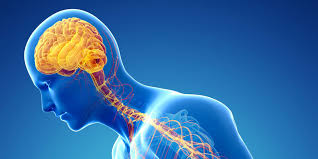
Parkinson’s disease is a degenerative disorder of the central nervous system that often impairs the sufferer’s motor skills and speech.
Symptoms of Parkinson’s Disease
Parkinson’s disease belongs to a group of conditions called movement disorders. The primary symptoms are the results of decreased stimulation of the motor cortex by the basal ganglia, normally caused by the insufficient formation and action of dopamine ,which is produced in the dopaminergic neurons of the brain. Secondary symptoms may include high level cognitive dysfunction and subtle language problems. Parkinson’s Disease is both chronic and progressive.
Parkinson’s Disease is the most common cause of parkinsonism a group of similar symptoms. Parkinson’s Disease is also called “primary parkinsonism” or “idiopathic Parkinson’s Disease” (having no known cause). While most forms of parkinsonism are idiopathic, there are some cases where the symptoms may result from toxicity, drugs, genetic mutation, head trauma, or other medical disorders.
Early symptoms of Parkinson’s Disease are subtle and occur gradually. Affected people may feel mild tremors or have difficulty getting out of a chair. They may notice that they speak too softly or that their handwriting is slow and looks cramped or small. They may lose track of a word or thought, or they may feel tired, irritable, or depressed for no apparent reason. This very early period may last a long time before the more classic and obvious symptoms appear.
Friends or family members may be the first to notice changes in someone with early Parkinson’s Disease. They may see that the person’s face lacks expression and animation (known as “masked face”) or that the person does not move an arm or leg normally. They also may notice that the person seems stiff, unsteady, or unusually slow.
As the disease progresses, the shaking or tremor that affects the majority of Parkinson’s patients may begin to interfere with daily activities. Patients may not be able to hold utensils steady or they may find that the shaking makes reading a newspaper difficult. Tremor is usually the symptom that causes people to seek medical help.
People with Parkinson’s Disease often develop a so-called Parkinsonian gait that includes a tendency to lean forward, small quick steps as if hurrying forward (called festination), and reduced swinging of the arms. They also may have trouble initiating movement (start hesitation), and they may stop suddenly as they walk (freezing).
Parkinson’s Disease does not affect everyone the same way, and the rate of progression differs among patients. Tremor is the major symptom for some patients, while for others; tremor is nonexistent or very minor.
Parkinson’s Disease symptoms often begin on one side of the body. However, as it progresses, the disease eventually affects both sides. Even after the disease involves both sides of the body, the symptoms are often less severe on one side than on the other.